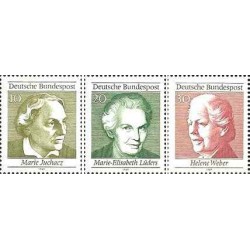- جدید
- ناموجود



توجه : درج کد پستی و شماره تلفن همراه و ثابت جهت ارسال مرسوله الزامیست .
توجه:حداقل ارزش بسته سفارش شده بدون هزینه پستی می بایست 100000 ریال باشد .
توجه : جهت برخورداری از مزایای در نظر گرفته شده برای مشتریان لطفا ثبت نام نمائید.

Giuseppe Francesco Antonio Maria Gioachino Raimondo Belli (September 7, 1791 – December 21, 1863) was an Italian poet, famous for his sonnets in Romanesco, the dialect of Rome.
Giuseppe Francesco Antonio Maria Gioachino Raimondo Belli was born in Rome to a family belonging to the lower bourgeoisie.
His father died, of either cholera or typhus, some time after taking up a job in Civitavecchia. Belli, with his mother and his two brothers, moved back to Rome, where they were forced to take cheap lodgings in Via del Corso. Belli began his poetical career initially by composing sonnets in Italian, at the suggestion of his friend, the poet Francesco Spada.
After a period of employment in straitened circumstances, in 1816 he married a woman of means, Maria Conti, and this enabled him the ease to develop his literary talents. The two had a son, Ciro, born in 1824. Belli made some trips to Northern and Central Italy, where he could come in contact with a more evolved literary world, as well with the Enlightenment and revolutionary milieu which was almost totally absent in Rome. It was during a stay in Milan that he came in touch with the rich local tradition of dialect poetry and satire, as modernized by Carlo Porta, whose witty vernacular sonnets provided him with a model for the poems in Roman dialect that were to make him, posthumously, famous.
His sonnets were often satirical and anti-clerical, as when he defined the Cardinals as 'dog-robbers', for example, or Pope Gregory XVI as someone who kept 'Rome as his personal inn'. Nevertheless, Belli's political ideas remained largely conservative throughout his life. During the democratic rebellion of the Roman Republic of 1849 he defended the rights of the pope.

After his wife's death in 1837, Belli's economic situation worsened again. In later years Belli lost much of his vitality, and he felt a growing acrimony against the world around him, describing himself as "a dead poet". Consequently, his poetical production dropped off and his last sonnet in dialect dates to 1849.
In his later years Belli worked as artistical and political censor for the papal government. Works of which he denied circulation included those of William Shakespeare, Giuseppe Verdi and Gioachino Rossini.
He died in Rome in 1863 from a stroke. His nephew, painter Guglielmo Janni, wrote a monumental biography in 10 volumes, which was published posthumously in 1967.
تشکر نظر شما نمی تواند ارسال شود
گزارش کردن نظر
گزارش ارسال شد
گزارش شما نمی تواند ارسال شود
بررسی خود را بنویسید
نظر ارسال شد
نظر شما نمی تواند ارسال شود

check_circle
check_circle















